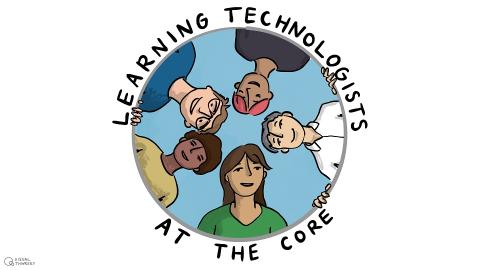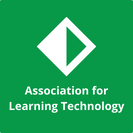
Following the publication of revised conditions of registration relating to the quality of courses which came into force on 1 May 2022, the Office for Students (OfS) announced a review of blended learning in higher education.
In May 2022, Professor Susan Orr was appointed to lead the review. The OfS also appointed a panel of academic experts to explore different higher education providers’ approaches to blended learning.
The OfS response to the review panel’s report sets out how the themes identified by the panel relate to our regulatory requirements.
- Blended learning review: Report of the OfS-appointed Blended Learning Review Panel, October 2022
- Response from the OfS, October 2022
The call follows a blended learning review commissioned by the OfS and led by Professor Susan Orr, Pro Vice Chancellor Education at De Montfort University. The OfS has called on universities and colleges to review their approaches to blended learning and teaching to ensure that courses comply with the OfS’s conditions of registration.
OfS-appointed reviewers interviewed students and staff at higher education providers as part of their work. The review panel found examples of good practice as well as identifying poor practice. The review panel has made 23 recommendations.
In response, the OfS has identified approaches to blended learning that could cause regulatory concerns in relation to the OfS’s quality and consumer protection requirements.
Our response
As the leading professional body for Learning Technology, we are responding to the review as ALT's Members are central to delivering the recommendations and have long been advocating for the importance of the quality of blended and fully online learning.
Examining the key findings of the review panel, David White, President of ALT and Head of Digital Education, University of the Arts London commented: “The report usefully curates findings which have been part of the discourse at ALT for some time and places them at the heart of what is required to create positive conditions for student success.”
Key findings from the report highlight the wide range and scale of blended learning provision, through examples of high quality blended approaches and innovation that support students’ learning as well as pockets of poor online teaching practice and poor online learning resources.
The report also recognises that balance between face-to-face and online delivery is not the key determinant of teaching quality. This is an important point in the context of ALT’s work in particular as it helps to address prejudices against blended or fully online provision, a priority ALT has continued to champion in the post-pandemic landscape.
We welcome that the OfS has explicitly set out expectations for universities and colleges to focus on the quality of blended learning provision. Following the return to more in person learning, teaching and assessment over the past year, there has been a lack of recognition of the importance of blended learning for the future of education and training and it is good to see the OfS recognising its importance and established good practice in this area.
We also agree with the consideration of the impact on students and the importance of setting out a clear expectation of what the learning experience will look like. ALT will continue to champion the professional expertise required to achieve the desired balance, and to create the best possible learning context for all students. Pedagogic reasoning together with expert knowledge and know-how of Learning Technology professionals is key to delivering the recommendation set out by the OfS. The future of blended learning provision is a strategic challenge that requires their input at all levels, from design to delivery, and most importantly to develop a strong vision for each institution.
ALT’s Annual Survey highlights the increase of leadership roles who provide just this input, and we call on the sector to continue to invest in and recognise the expertise in Learning Technology Professionals at all levels, including senior management.
Reflecting on the report, Puiyin Wong, ALT Trustee and Learning Technologist at the Royal College of Art, commented: "Building on examples of good practice in blended learning, there is still much to be done: the report points out issues around engagement and sense of belonging with online learning, which are key contributing factors to poorer overall educational experiences. ALT can play a role in this adeavor by supporting collaborations between teaching and professional services colleagues in learning design, alternative assessment methods and community building, which informed by sound pedagogic principles, can help to ensure that students' educational experiences will continue to improve."
About the Orr Blended Learning Review
Key findings of the review panel include:
- There are examples of high quality blended approaches and innovation that support students’ learning.
- There are pockets of poor online teaching practice and poor online learning resources.
- The balance between face-to-face and online delivery is not the key determinant of teaching quality.
- Students reported that they received less timely and lower quality feedback in online learning settings than in face-to-face settings.
- Students reported feeling isolated studying online during national lockdowns and they identified a negative impact on their sense of belonging to an academic community because of an absence of peer networks and support during periods of isolation.
The review panel’s report sets out recommendations, which call for universities and colleges to ensure:
- Students must have clear information about the approach they can expect to blended learning when they are thinking about applying for a course and after they have registered
- Unedited lectures from previous years should be carefully reviewed before they are used again, to ensure all course information is accurate and course content is up to date
- Growth in student numbers does not drive their approach to blended learning and, instead, the blended approach should be informed by sound pedagogic principles
- Approaches to learning and teaching should allow academics to identify where students are struggling with online content or falling behind, so that their learning needs can be addressed.
- They engage with students to identify and address barriers to attendance and engagement
- They work with students and students’ unions to create tools (including surveys, focus groups, reference groups) for students to evaluate their experience of blended study.
In response, the OfS has set out issues universities and colleges should consider to help ensure they remain compliant with its regulatory requirements, including whether:
- Online lectures are up-to-date and of good quality
- Online feedback is timely and of the same high quality as students would expect when learning in-person
- Decisions about the balance between online and in-person learning are underpinned by sound pedagogic reasoning, not a desire to accommodate increased student numbers or to compensate for limitations in the physical space needed for in-person teaching
- Students receive clear detailed information about how their course will be delivered
- Students and staff are supported to develop the skills they need to engage effectively in online learning.
